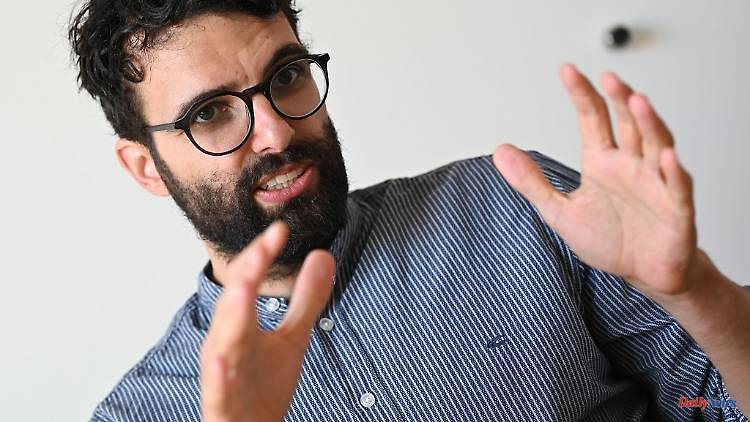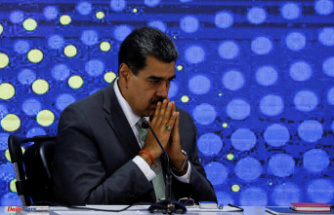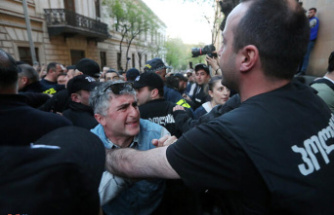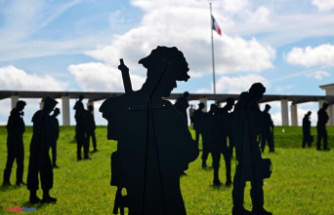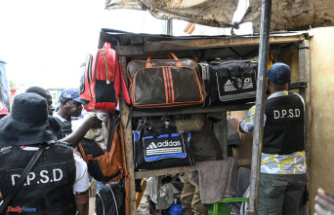Cyclists are making better and better progress, but far too often there are still no safe paths for them, the ADFC Hessen complains. Its new managing director relies on cooperation with other associations.
Frankfurt/Main (dpa/lhe) - In the fight for a turnaround in traffic, the General German Bicycle Club (ADFC) wants to forge more unusual alliances in order to increase the pressure on politics. A partner for joint campaigns, for example, is the social association VdK, said the new managing director of the ADFC Hessen, Sofrony Riedmann, the German press agency. "The traffic turnaround is an ecological but also a social issue," said Riedmann. The very car-centric transport system in Germany excludes many people, for example if they cannot or can no longer drive a car due to restrictions - or cannot afford one.
The VdK is also involved in the planned referendum on traffic change, for which the collected signatures are to be handed over to Transport Minister Tarek Al-Wazir (Greens) at the end of August. The aim of the initiatives and associations involved is to pass a law that will make mobility in Hesse climate-neutral and socially just by 2030. Cycle paths, footpaths and, above all, buses and trains are to be greatly expanded. "We want to achieve political success here," said Riedmann. There is a very positive response from the public.
The 36-year-old gave the condition of the cycle paths in Hesse a grade of 4 minus, sufficient to poor. There is a will to improve and Hessen is further along than other federal states, but a lot still has to happen. "Cycling should become attractive for many people from different population groups," said Riedmann. Society as a whole would benefit from this, both in rural and urban areas. A comprehensive, good cycle path network is needed.
To do this, investment in cycling would have to be significantly increased: instead of the currently calculated 10 to 15 euros per inhabitant in Hesse, 30 euros would be necessary, i.e. at least twice as much. Compared to the construction of the Autobahn, these are not huge sums. In addition, in many municipalities and at state level there was a lack of traffic planners to implement construction projects for bicycle traffic.
More and more districts are now creating cycling concepts, such as the Odenwald district and the Waldeck-Frankenberg district. In order for all of this to be able to be implemented, additional funding and planners are needed, said the geographer: "Demand will increase significantly in the foreseeable future."
The bicycle boom of recent years will continue, also thanks to further developments in the bicycle industry. This is by no means just a big city phenomenon: "Pedelecs, for example, are bought and ridden to a large extent in rural areas. There, too, there is great interest in cycling more," said Riedmann.
After a sharp increase in recent years, the ADFC Hessen currently has almost 20,000 members. According to Riedmann, more efforts should be made to attract young members and women who have so far been underrepresented in active engagement. In order to change this, for example, a women's network was set up within the association. Riedmann has been managing director of ADFC Hessen since July 1, 2022. His predecessor Norbert Sanden will retire in mid-August.

